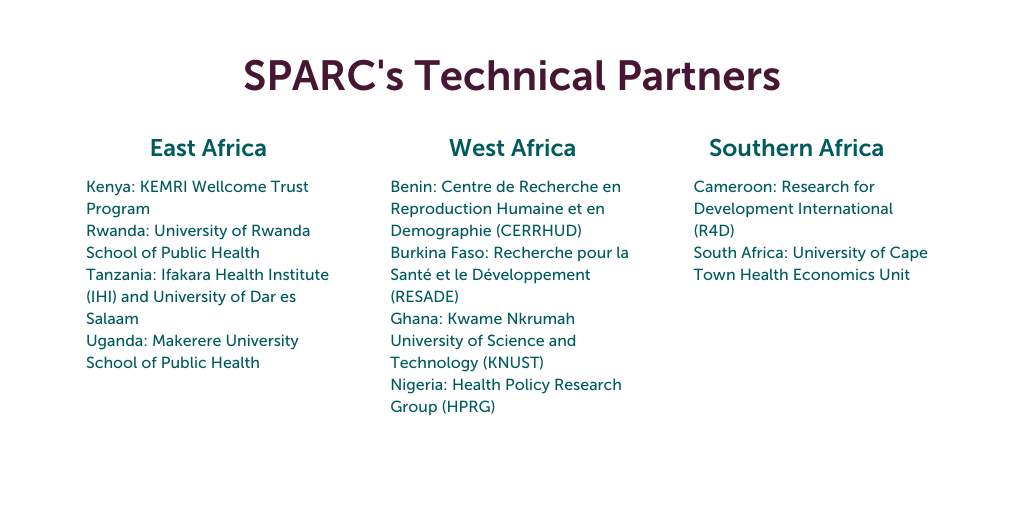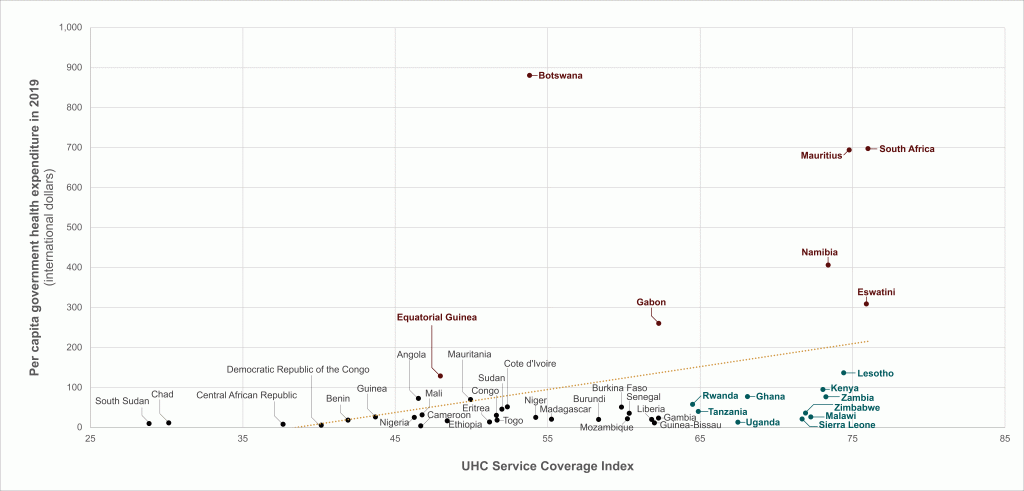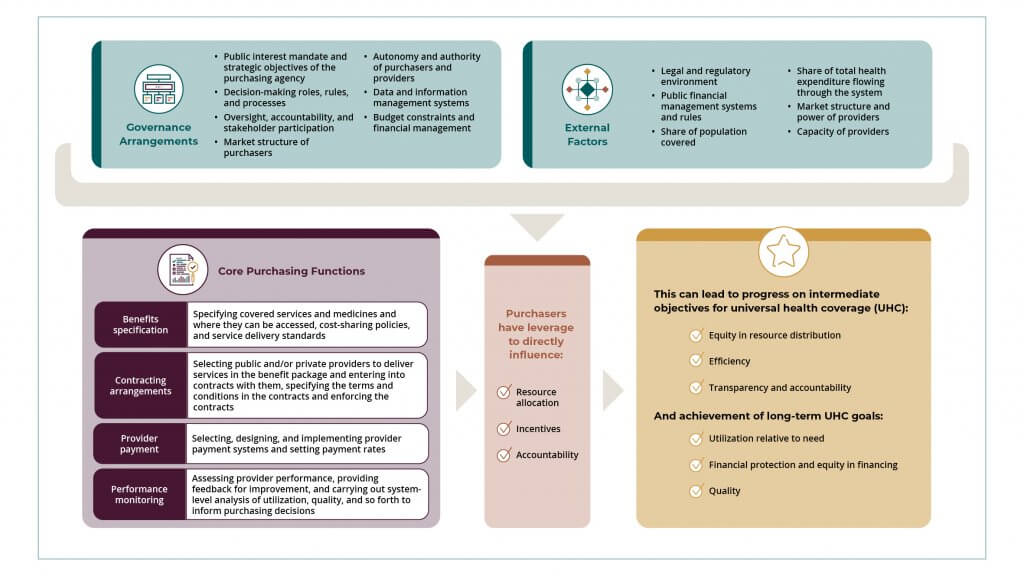Co-creating practical evidence on strategic health purchasing in Africa
Co-creating practical evidence on strategic health purchasing in Africa
[Editor’s Note: This post is a prelude to a series of papers on strategic health purchasing on the African continent that will be published as part of a special issue of the Health Systems & Reform journal in June 2022. Before the special issue is released, these papers will be published individually over the coming months, beginning in April 2022.]
Agnes Munyua and Cheryl Cashin
To make progress toward universal health coverage (UHC), most countries need to commit more public resources to health, but they also need to use resources most effectively.
Strategic health purchasing — deliberately directing health funds to priority populations and services, and actively creating incentives aligned with population health needs — is increasingly recognized as an important lever to make the most effective use of limited health resources on the journey to UHC. It involves decisions about what health services should have priority for public funding, selecting the providers that will provide these health services, and defining how and how much to pay those providers to deliver the services.
Because these decisions affect how funds flow through the health system and to which providers, governments have to navigate technical, institutional and political challenges to implement them.
Strategic purchasing is particularly important for countries in sub-Saharan Africa, because public funding for health has often not kept pace with UHC commitments. And, at the same time, there is wide variation in progress toward UHC and health outcomes on the continent that does not directly correlate with per capita government health spending (Figure 1).
Figure 1. UHC Service Coverage Index and Per Capita Government Health Expenditure in sub-Saharan Africa (2019)
The Strategic Purchasing Africa Resource Center
The Strategic Purchasing Africa Resource Centre (SPARC), a resource hub hosted by AMREF Health Africa with technical support from Results for Development (R4D), is facilitating a collaborative learning agenda among 11 technical partners in 10 countries across anglophone and francophone Africa — Benin, Burkina Faso, Cameroon, Ghana, Kenya, Nigeria, Rwanda, South Africa, Tanzania and Uganda. SPARC and its technical partners are generating new insights and practical lessons to inform country policy and regional discourse on how to better use strategic purchasing to advance progress toward UHC.
Making progress on strategic purchasing in Africa
SPARC and its technical partners have been collaborating for the past three years to better understand how to meet the technical, institutional and political challenges and make progress on more strategic purchasing to advance UHC in sub-Saharan Africa. The partners co-created a common framework to describe and assess country-level progress on strategic purchasing: the Strategic Health Purchasing Progress Tracking Framework (Figure 2).
Figure 2. The SPARC Strategic Purchasing Progress Tracking Framework
Because it was co-created by a group of African health financing experts, the framework directly targets the practical policy questions that arise in country processes to improve health financing systems, and purchasing functions in particular.
Through the process of applying the framework and collecting information from their country stakeholders, the technical partners were able to raise awareness of strategic purchasing approaches and policy options, identify priority areas for intervention, and contribute to the policy processes in their countries.
Upcoming special issue of Health Systems and Reform
The results of this deep engagement and collaboration to better understand strategic purchasing on the African continent will be shared through a special issue of the Health Systems and Reform journal entitled Making Progress on Strategic Health Purchasing in sub-Saharan Africa, which is scheduled to be launched in June 2022. The papers will be published online starting from April 2022.
This special issue will feature original papers and commentaries by more than 40 authors from across Africa, showcasing the tremendous breadth and depth of health financing expertise on the continent.
The papers provide detailed descriptions of health financing schemes and purchasing systems, the progress being made, and obstacles still to overcome. Key lessons highlighted throughout the special issue show that, while strategic purchasing functions and policies can be institutionally demanding and technically complex, steps can be taken in any health system to improve purchasing decisions.
For example, the fundamental steps of defining a package of priority services and channeling funds to frontline providers (with flexibility and accountability to deliver those services) has led to tangible improvements in a number of countries, even without larger-scale purchasing reforms.
This body of work also exposes how the fragmentation in financing arrangements that is common in African countries severely limits the ability of new purchasing approaches, no matter how sophisticated, to significantly affect service delivery outcomes and progress toward other UHC objectives. Nonetheless, progress is still possible.
More can be done to improve purchasing within existing budget systems and to learn from and implement new purchasing approaches adopted by performance-based financing and other schemes. Countries do not have to wait until major consolidation of health financing arrangements becomes politically feasible to take steps to defragment purchasing arrangements and make more effective use of limited government funding for UHC.
SPARC and its technical partners will continue to mine the insights and lessons from this practical evidence to advance the learning agenda and support country policy processes across the continent in support of more strategic health purchasing for UHC.
Photo © SPARC















